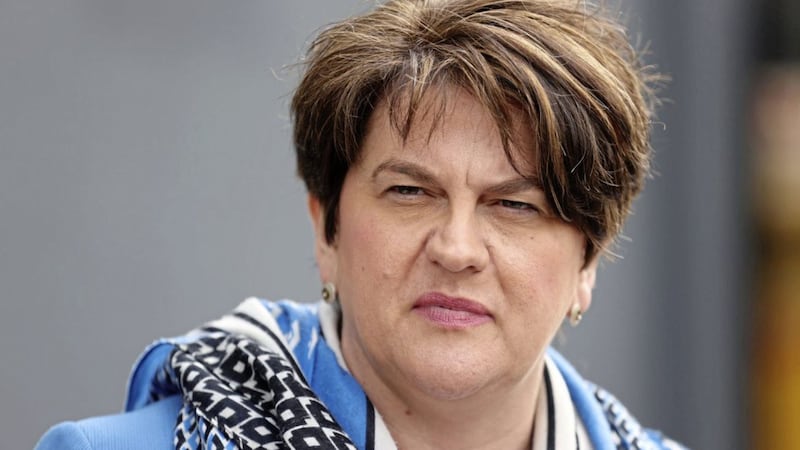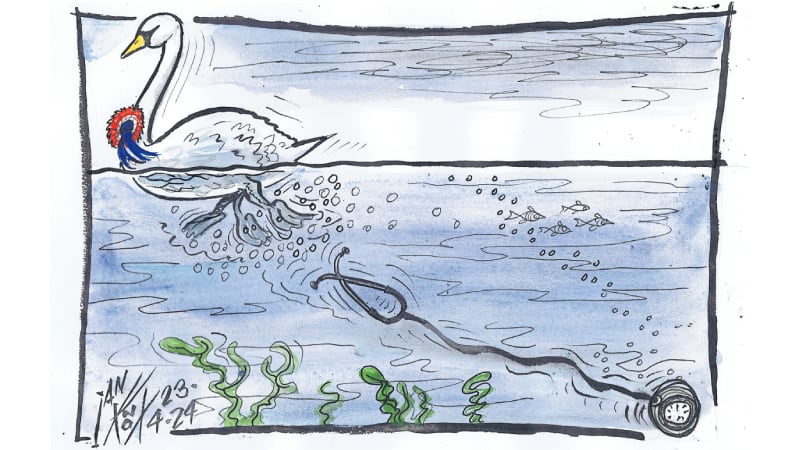WHEN ARLENE Foster became DUP leader at the beginning of 2016 the atmosphere and political landscape was distinctly different than it is now. Stormont had its first post-Good Friday Agreement opposition, while relations between the DUP and Sinn Féin were relatively healthy. The Fresh Start agreement had been brokered a matter of weeks previously and there was an optimistic expectation that politics could move forward. Retrospectively, the collective naivety of the time is almost embarrassing.
Six months into Mrs Foster's tenure, the UK voted to leave the EU. It was a cause the DUP supported enthusiastically without necessarily thinking through the consequences. There was initial unity in the response to Brexit from within the Stormont executive but matters quickly deteriorated as it became apparent that special arrangements were required for the north that wouldn't sit comfortably with unionists.
RHI – the scandal that an inquiry subsequently scaled down to little more than costly lapses in judgement – brought down the institutions at the beginning of 2017 and from then on, Arlene Foster was always on the defensive, distrusted by many within her own ranks and maligned as arrogant and incompetent by political opponents. Fortune intervened, however, and the confidence and supply deal with the Tories delivered the DUP a fillip, creating a temporary distraction from the dormant institutions.
Read More:
- Arlene Foster's departure sparks fears over Stormont's future
- Arlene Foster retains support of long-time advocate Peter Weir
- DUP likely to harden anti-Protocol policy under a Poots leadership
- Brian Feeney: New DUP will bring down Stormont (premium)
- Who's in the running? DUP leadership contenders
But the fleeting London love affair ended with an election that brought the DUP down to earth with a bump. The party soon came to realise that Boris Johnson, who just a year earlier had been given a hero's welcome at the DUP conference, was not as dedicated to Northern Ireland as his rhetoric implied.
The imposition of the Irish Sea border was the conclusion of a process in which the DUP sought to frustrate every sensible solution in favour of a hard Brexit but when Britain's withdrawal from the EU was finalised, the party emerged disorientated and friendless.
This outcome has precipitated a period of DUP self-loathing but typically the animosity was projected onto nationalists, Boris Johnson, Michel Barnier and the Irish government. There has been a complete lack of self-awareness and no reflection on past mistakes. As leader, Arlene Foster is ultimately responsible for party's blunders yet there is a sense that she is being scapegoated for both collective failure and a shifting social and political landscape.
An accelerated transformation in attitudes to LGBT+ issues and abortion has left the party looking antiquated in the eyes of many unionists, while the hard Brexit for which it campaigned and subsequently agitated for has also alienated a swathe of its constituency. But again, the party has a blind spot for its failure to respond, the fear of being cast as 'Lundy' constraining its response to new challenges.
With the forthcoming regime change the DUP is at a fork in the road yet despite the long-held realisation that it needs to broaden its appeal, the party seems incapable of changing its nature. Rather than looking forward, the talk is of a back-to-basics approach that seeks to consolidate its support and head off the TUV challenge. Taking a tougher line with Sinn Féin and wrecking the protocol are the likely rallying cries of the new leadership but like its support for Brexit, these short-term tactics can lead to unintended consequences that will potentially prove more damaging in the long-term.
The current chaotic and directionless state of unionism is apparent to everybody, apart from those in position to bring some cohesion and strategy.
It's a situation that does not bode well for the intensifying conversation about Northern Ireland's constitutional future and the role of the unionist community in a new Ireland. The direction the DUP appears to be heading post-Arlene is one where the wagons are circled closer and attitudes are hardened. Those outside of the DUP who vilified Arlene Foster and believed her tenure was a disaster may one day look back on the past five years as an opportunity missed.


